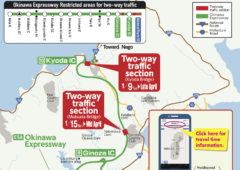2013.12.18
Japan and ASEAN agree on air freedom
The Association of Southeast Asian Nations, ASEAN, has backed a bid by Japan for endorsement of “freedom in the skies” triggered by China’s imposition of a large air defense zone that covers portions of Japan and Korea.
ASEAN was careful in phrasing its support during a summit in Tokyo. ASEAN leaders issued a declaration on the issue and “agreed to enhance cooperation in ensuring freedom of over flights and civil aviation safety.” The decision came on the heels of a Japanese pledge to spend $20 billion on aids and grants to countries in ASEAN.
The summit was the first meeting of ASEAN leaders since China created its air defense identification zone and demanded that all countries immediately begin following its rules, which included filing flight plans, being in contact with Chinese controllers when within the zone, and obeying Chinese directives. Japan, Korea and the United States have ignored the new Chinese rulings.
In a speech, Prime Minister Shinzo Abe explained “We underscored the importance of maintaining peace, stability and prosperity in the region and promoting maritime security and safety, freedom of navigation… and resolution of disputes by peaceful means.” His remarks have rankled China, which currently has sovereignty issues with not only Japan, but four other countries belonging to ASEAN. The ASEAN decision to cautiously support Tokyo’s position is viewed by some observers as a move that could lead to a relaxing of tensions, and modifications of China’s position.
An ASEAN communiqué called the weekend declaration a “proactive contribution to peace” and an action, which could calm the region. The communiqué said ASEAN Leaders looked forward to Japan’s efforts in contributing constructively to peace, stability, and development in the region.” The summit celebrated the ASEAN 40th anniversary of ties with Japan.
Abe called the ASEAN an important ally of Tokyo. “Japan and ASEAN are true partners for prosperity. To achieve this we have to preserve peace, we have to protect navigation freedoms in the sea and sky. Since taking office my diplomatic strategy is one that involves looking at the whole world. In it ASEAN has always been a special partner.”
The Philippines, Vietnam, Malaysia and Brunei all have sovereignty issues with China over territories in the East China Sea. ASEAN, which also encompasses Laos, Cambodia, Singapore, Miyanmar, Indonesia and Thailand, is careful in its actions and phraseology, to avoid creating additional conflicts with China, which wields enormous economic might in the region.

 2024.02.07
2024.02.07 2024.01.31
2024.01.31 2023.12.11
2023.12.11 2023.11.02
2023.11.02 2023.10.26
2023.10.26 2023.09.29
2023.09.29 2023.09.01
2023.09.01 2023.08.22
2023.08.22 2023.08.15
2023.08.15 2023.07.27
2023.07.27






